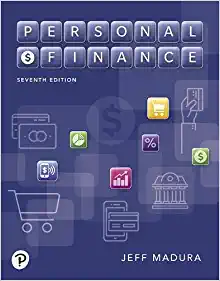Question
Q1. Beta Enterprises, Inc. is considering a project that has the following cash flow and WACC data. What is the project's NPV? Enter your answer
Q1.Beta Enterprises, Inc. is considering a project that has the following cash flow and WACC data. What is the project's NPV? Enter your answer rounded to two decimal places. Do not enter $ or comma in the answer box. For example, if your answer is $12,300.456 then enter as 12300.46 in the answer box.
WACC: 14%
Year: 0 1 2 3
Cash flows: -$950 $500 $300 $400
Q2.Delta Enterprises, Inc. has a WACC of 10% and is considering a project that requires a cash outlay of $1,250 now with cash inflows of $500 at the end of each year for the next 5 years. What is the project's Discounted Payback?
Q3.Gamma Enterprises, Inc. is considering a project that has the following cash flow and WACC data. What is the project's MIRR?
WACC: 13%
Year: 0 1 2 3 4
Cash flows: -$1,100 $300 $320 $340 $550
Q4.Hogwarts Inc. is considering a project with the following cash flows:
Initial cash outlay = $2,500,000
After-tax net operating cash flows for years 1 to 4 = $779,000 per year
Additional after-tax terminal cash flow at the end of year 4 = $600,000
Compute the profitability index of this project if Hogwarts' WACC is 11%.
Q5.Anderson Associates is considering two mutually exclusive projects that have the following cash flows:
Project AProject B
YearCash FlowCash Flow
0-$10,000-$8,000
14,0007,000
22,0003,000
36,0001,000
48,0003,000
At what cost of capital do the two projects have the same net present value? (That is, what is the crossover rate?)
Q6.Alpha & Omega wants to invest in a new computer system, and management has narrowed the choice to Systems A and B.
System A requires an up-front cost of $100,000, after which it generates positive after-tax cash flows of $70,000 at the end of each of the next 2 years. The system could be replaced every 2 years, and the cash inflows and outflows would remain the same.
System B also requires an up-front cost of $100,000, after which it would generate positive after-tax cash flows of $48,000 at the end of each of the next 3 years. System B can be replaced every 3 years, but each time the system is replaced, both the cash outflows and cash inflows would increase by 10%.
The company needs a computer system for 6 years, after which the current owners plan to retire and liquidate the firm. The company's cost of capital is 14%. What is the NPV (on a 6-year extended basis) of System A?
Step by Step Solution
There are 3 Steps involved in it
Step: 1

Get Instant Access to Expert-Tailored Solutions
See step-by-step solutions with expert insights and AI powered tools for academic success
Step: 2

Step: 3

Ace Your Homework with AI
Get the answers you need in no time with our AI-driven, step-by-step assistance
Get Started


